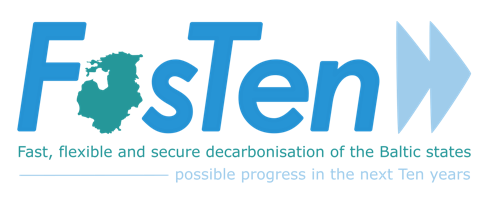
About FasTen
The climate challenge requires fast reduction of greenhouse gas emissions across the globe. FasTen project will explore the potential to accelerate the decarbonisation of the Baltic states in the next…
The climate challenge requires fast reduction of greenhouse gas emissions across the globe. FasTen project will explore the potential to accelerate the decarbonisation of the Baltic states in the next 5-15 years. The project will look for opportunities not just in the electricity generation but also how emission free electricity could replace fossil fuels in the heating of buildings, in the transport sector, and in the industrial sector. In the Baltic countries, as elsewhere, these cause more emissions than the electricity sector
Baltic countries are planning to desynchronize from the Russian electricity grid and synchronize to Central European electricity grid by 2025. This change and decarbonization of the energy sector could have large impacts on energy security. National energy and climate plans include relatively large investments to transmission capacity, wind power, and solar power while phasing out fossil fuel phased capacity.
The increasing role of electricity and variable power generation will also mean that moving electricity between regions and countries will become more important – especially since wind can blow on the other side of the Baltic Sea even if it is still in the Baltic states. Consequently, the project will try to understand the costs and benefits of different options to improve energy security.
Collaboration between research organizations has always been hindered by private data sets as well as closed tools and models. FasTen project will setup an open data set using data sources that allow to do this. The project will also use open-source tools and thus enable efficient collaboration between the project partners as well as provide transparent analysis to support energy policy deliberations.
Fact Box
Acronym: FasTen
Duration: 01.01.2020 – 31.10.2021
Funding: 1 474 048 NOK
Project Owner: VTT Technical Research Centre of Finland
Project Manager: Juha Kiviluoma
Project Partners: Riga Technical University, Lithuanian Energy Institute
Observers: None
Webpage: None

